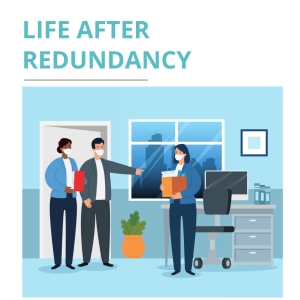Queen Elizabeth II
Today is the state funeral of Queen Elizabeth II.
Our thoughts are with the Royal Family, Armed forces and anyone who has been effected by the passing. She was the longest reigning monarch, and will be missed by many around the world.
We thank her for her 70 years of service.
Life After Redundancy
 Being made redundant is never nice, however, it is key to remind yourself It is not personal, it’s just business. The important thing to know after you have been made redundant is your rights.
Being made redundant is never nice, however, it is key to remind yourself It is not personal, it’s just business. The important thing to know after you have been made redundant is your rights.
Your rights will be different depending on which country you live in; this is based on UK rights. If you are under the age of 22 but are eligible for statutory pay, you will get half a week's pay for each full year you were with the company. If you are aged 22+ but under 41, you will receive one week's pay for each year you were above 22. You will receive one and half weeks of pay for each full year you were 41 or older.
In the UK, you are not entitled to statutory pay if:
- Your employer offers to keep you on
- Your employer offers you a suitable work alternative which you refused without good reason
- Former registered dock workers and share fishermen
- Crown servants, members of the armed forces or police services
- Apprentices who are to employees at the end of their training
- A domestic servant who is a member of the employer’s immediate family
(source: https://www.gov.uk/redundancy-your-rights/redundancy-pay)
It’s discrimination if you’re made redundant at least partly because you’re:
- During pregnancy or maternity leave
- A certain race, ethnicity or nation
- married or in a civil partnership
- a man or a woman
- disabled
- Part of the LGBTQ+ community
- have a particular religion or set of beliefs
- older or younger than other individuals you work with
These categories are called ‘protected characteristics’. If you fall into one of these categories, you may still be made redundant, as long as the above is not the reason.
How to cope with redundancy
It is important to remember, that being made redundant is not always a reflection of you or your work.
There are various different directions you could go in after being made redundant.
Some people will want to take a break from working to travel, spend time at home or take the opportunity to put themselves through further education. However, this is not always a choice everyone will be able to make, others will need to go back to work.
If you plan to start applying for jobs straight away, it is important you double check with your employer that you will be allowed paid time off for job interviews, depending on your government rules, this may be a legal requirement of your current employer.
Before you begin searching for employment, it is essential to check that your CV is up-to-date, has all the necessary information, and, if at all feasible, include a reference from your present company. Need tips for updating your CV? Our top senior recruiter has shared what they look for in a CV: https://www.oselorecruitment.com/blog/blog/tips-for-writing-your-cv
Being made redundant may be a blessing in disguise for some, especially If their current position is not enjoyable for them anymore. If you find yourself in this position, it’s crucial that you consider what it is you want to be doing. The best way to do this is to ask yourself, what do I like and dislike in the current day-to-day tasks of my role, and work from there. It may be only a slight change, for example going from HR to admin, or you may realise you need a complete change in the industry. Whatever the outcome is, it is important you take this opportunity and use it to your advantage.






